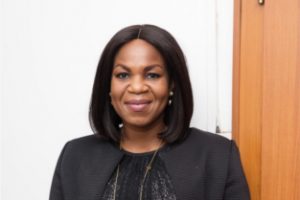*SUNREF’s $70m facility open to supporting efforts to close gap
Rural communities in Nigeria still rely on expensive diesel power sources, averaging N150 per kilowatt hour (kWh) or $0.40/kWh to run their activities, the Nigerian Energy Support Programme (NESP) has said.
The NESP is backed by the government of Germany through the Deutsche Gesellschaft für Internationale Zusammenarbeit (GIZ); it stated this at a recent meeting organised for investors in Nigeria’s solar energy sector by the Sustainable Use of Natural Resources and Energy Finance (SUNREF). The SUNREF is equally backed by the Agence française de développement (AFD).
Fauzia Mohammed, an advisor at the NESP noted that this costly diesel power source is mostly the alternative available to rural agriculture operatives for production, transportation, processing, and distribution. Mohammed however indicated that improvements in research and development (R&D) as well as policies are beginning to make dents on such heavy reliance on diesel power through solar mini grids.
Mohammed’s claims coincided with SUNREF’s call on solar mini grid investors to take advantage of its $70 million facility directed at supporting investments in solar mini grids and energy efficiency ventures.
“Half of the population (of Nigeria) are not connected to the main grid, while the other half are grid-connected, but suffer from unreliable power supply,” Mohammed said in her presentation to the audience.
She noted that while access to electricity is “vital for economic development and good living standards,” “solving the issues in the electricity sector that are affecting the quality of the main grid supply will take time.”
“Meanwhile, Nigeria’s population continues growing at a fast pace and urgently needs solutions. In Nigeria, the main rural electrification solution is the diesel generator which runs on fossil fuel at a high cost ₦150/kWh ($0.40/kWh). The agricultural sector is also heavily dependent on fossil fuel inputs for production, transportation, processing, and distribution.” she noted while pointing out that R&D and favourable policies have “triggered the transition from generators to renewables such as mini grids.”
She added that there is an exponential growth of mini-grids development in Nigeria with multiple stakeholders’ involvement and sector innovations such as interconnected mini-grids defining the landscape.
Based on this, Mohammed highlighted that there are currently, “70+mini-grids in operation and 100+ mini-grids in planning and construction,” across Nigeria.
According to SUNREF, its $70 million-facility would offer financing of up to 100 per cent of investment cost in solar power projects, with attractive terms: concessional rate, long-term loans, grace period, to project developers.
To deepen its impacts, SUNREF explained that the facility further offers guides to potential beneficiaries in building their projects, selecting proven technologies, and anticipating return on investment and environmental benefits.
Clarifying what the facility expects from investors looking to tap from it, of SUNREF’s partner banks, noted that the sustainability of a potential project is crucial in its consideration processes, adding that projects must possess strong documentation on its economics.
“By economics, we refer to a thorough assessment of the market – including demand, supply and pricing considerations. The market structure and competition will also be analyzed to determine probability of success in the market.
“Probability of success for renewable energy projects may be demonstrated through executed PPAs for target communities or clusters. This can be further enhanced through state government investment protection guarantees or assurances,” the partner bank explained.





